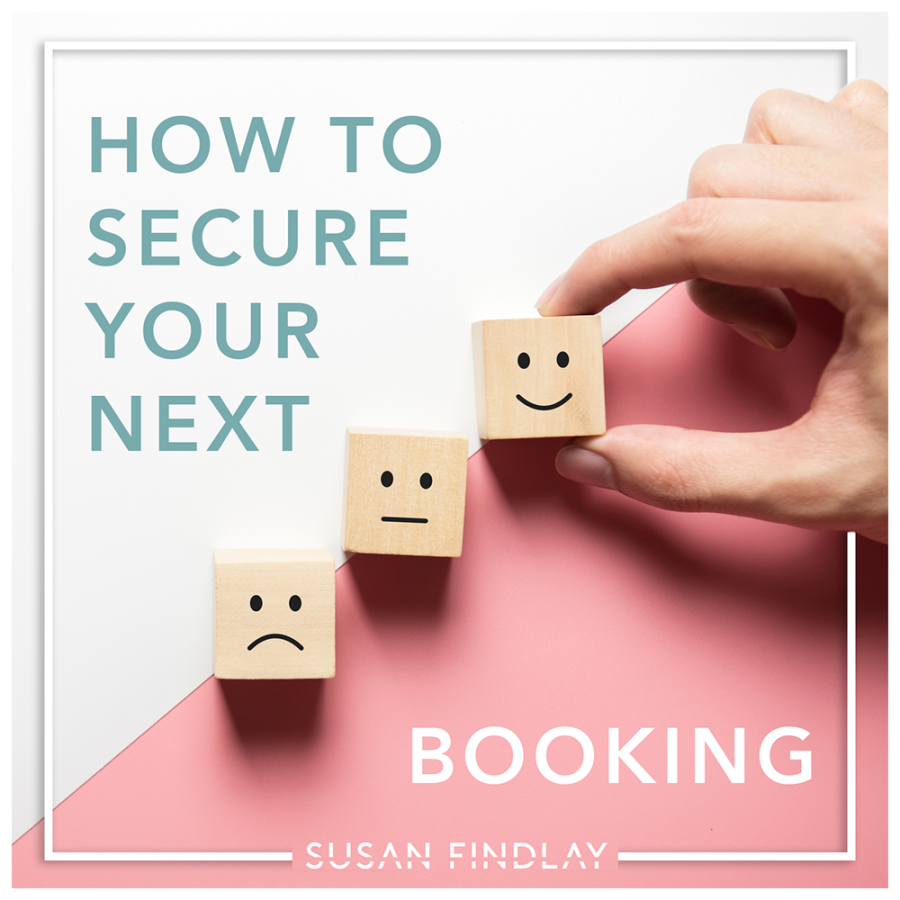In order to ensure the return of a client, it is important that the client leaves the first session with a positive outlook on your service. A key factor in achieving this is to show your client that you are warm, welcoming, and genuinely are about their treatment. Integral to a successful therapist-client relationship is clear communication. Get to know your client from the first contact by listening to and communicating with them before, during, and after the session. These might seem obvious qualities that will be attractive in securing a positive relationship with your client, but they are often assumed to be innate in all of us, but do not necessarily hold true for all of us. This might be the perfect time to examine and ask yourself, could you be better in one of these areas i.e. listening, do you wait for your client to finish their story or are you speaking before they have had time to take a breath. Are you making eye contact or are you writing notes? The art of listening is the ability to remember their story and only put the finer details down during the interview process, you can write up the whole story after the session.
Client Communication
Instead of asking your client a closed question like ‘do you want to come back?’, try asking an assumptive question like ‘so let’s book your next appointment within the next five days to make the treatment more effective, yes?’. To encourage clients to return, explain to them why they should book a regular session. Provide them with an explanation that demonstrates an understanding of the process, such as:
“In the beginning you might find treatment times need to be closer together to help maintain positive changes as well as to notice progress, but gradually the times will lesson in frequency.”
By offering this type of explanation, you are showing a belief in what you do. You exhibit confidence in what you’re offering, and it increases the client’s belief that you are taking charge of their care.
Clients can often neglect appointments if they get in the way of other things, and that appointment can end up being weeks, months, or even years later, lessening the effectiveness of the treatment. I once had a client go awol for two years, when she came back she could not say enough about the value of receiving a regular massage, especially since she was having difficulty getting on her bike, her hips had seized up, it took a few sessions to right things, but she has never missed her monthly appointments since.
This is why it is important to secure your client’s next appointment before they leave. Let your client know that by not following up the current appointment, they will be lessening the effectiveness of the work that they have just had in the session. Ideally the client will appreciate your honesty and instead of taking what you’re saying as a simple sales tactic, they will understand that it is important to give the appropriate time to the sessions to maximize its effectiveness.
Listed below are some suggestions to help you improve your approach:
- I would suggest that you book for a follow up session within 10 days time
- We’ve made good progress today, in order to capitalise on that I would need to see you in a weeks time.
- As you know regular massage has many health benefits, hence, MOT sessions are equally important, when would you like to re-book?
Try asking yourself, what do you do to encourage your clients to book? Can I ask you how often do you have a massage? Do you actually believe in the benefits of regular massage? If you did you would be able to express how much it has done for you and your well-being.
The Importance of a Website
A website is your clients source of information about what you have to offer, so it is important that your website is well structured, clear, and to the point. Consider your client’s first impression. Are you being clear about what you are offering, or is your information bulky and unclear? For a positive user interaction with your website, encouraging first time and repeat bookings, use a few buzz words to describe your service – friendly, professional, one to one, etc.
Consider your use of language. Does your website read easily? Does it encourage you to read more? Can the client book an appointment via the website?
Your website is often the client’s first point of contact with your service, and they will use it to determine whether or not you are the right fit for them. So be confident! Even if your website is not perfect, confidence in your service will go a long way.
 Change it up!
Change it up!
If you find that your sessions are becoming stale, that you seem to be doing the same thing with every client, or that you are thinking of things other than what your hands are doing, then be honest with yourself and make a change to improve your service. Here are some tips you can use to ensure that your clients are getting the best of your service and to encourage them to return for another session;
- Get out of your comfort zone. Try varying your technique or combining it with another one – explore what’s possible! For instance, instead of doing a straightforward deep stroke, add a little bit of vibration to it as you go along.
- If you find that you always use the same sequence of positions throughout your session, make a note in your write ups about your structure and think about how it could be different, i.e. start in supine instead of prone.
- Don’t avoid side lying. It is a highly effective way of reaching some of the more difficult to access areas.
- Switch between your tools. Use a variety of oils and waxes, and offer your clients a choice in what you use, making them feel more involved in the process.
- Offer fresh water, add some lemon or cucumber, to make the make the experience as peaceful and positive as possible for the client.
- Look through the eyes of the client. Walk into your space with fresh eyes, see what the client would see, notice what they would notice, and make any changes that you see fit.
 Empathy
Empathy
Though it may seem obvious, it is important to not underestimate the power of empathy when it comes to building a successful rapport with your client. Empathy is a tool you can use to help determine the causes of a client’s concerns, through asking them questions and getting to know their background and history. Approaching the session from a place of empathy increases your awareness of your client’s state of being, we’ve all been taught to recognize when a client is responding negatively to our touch, increased localized tissue tension, holding their breath, etc. but how can you be more empathetic from when they book their appointment to receiving a massage.
Listed below are four ways in which you can be more empathetic towards your clientele:
1. Online Booking: By offering online booking via a website or app you make it easier for your client to book, so they don’t have to take as much time out of their daily lives to arrange a session. If you require an email or a phone call to arrange a session, you may be losing out on a lot of potential clients. Although the first session I do understand you might want to have an initial consultation over the phone.
2. Emails: Follow up appointment booking with confirmation emails to acknowledge your client before you meet them. A follow up email with a warm, friendly tone and a thank you message establishes a professional first contact with your client, helping to build a positive rapport, leading to return sessions. A follow up email after treatment is also of great value to your practice. It frees the client of the responsibility to remember the advice you gave them, so they can leave the session feeling relaxed, knowing that the information they need is in an email.
3. Digital Intake Form: Digitise your intake form so that you can know in advance what to discuss with your clients. This allows you to avoid keeping the client waiting while you read their form, showing them that you value their time. When a client is free to fill out a form in their own time, they may give it more of their attention which would allow you as their therapist to get to know more about their needs and concerns.
4. Listen: Listen to your clients and remember what they say. Every client has their own preference as to how they want their session to go. Some like a quiet massage treatment, whereas others like to chat. One of the telltale signs is if I hear a client making an ‘mmm’ sound and not using real words to respond to me, I know I need to be less chatty and allow them to enjoy the moment.
When a client talks to you, they are confiding in you, so it is important to remember some details about their life. For example, if they have an event coming up, you could take an interest and acknowledge it by texting them, wishing them luck (1) If it is an emotional stress I often given them techniques for homecare that enable them to decrease their anxiety. Whatever it is, if you individualize your session by acknowledging it in one format or another, it will affirm that you are listening.
Professionalism
Empathy, confidence, and clear communication are some of the tools you need to build and maintain a successful massage therapy practice. These qualities will see a lot more returning clients. Clients want to know that they are in the hands of a professional, and if you can ensure them that they are, by being knowledgeable about the process and caring about them, they are likely to trust you when you tell them about the importance of a follow up appointment.
References
- Simmons, Meredith. “Why Empathy Is Important And How To Bring It Into Your Massage Practice”. MINDBODY For Business, 2019, https://business.mindbody.io/education/blog/why-empathy-important-and-how-bring-it-your-massage-practice. Accessed 15 Dec 2019.

